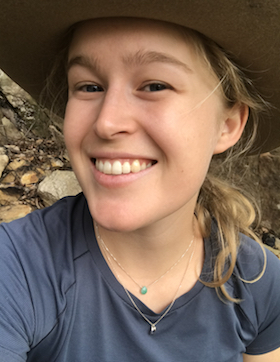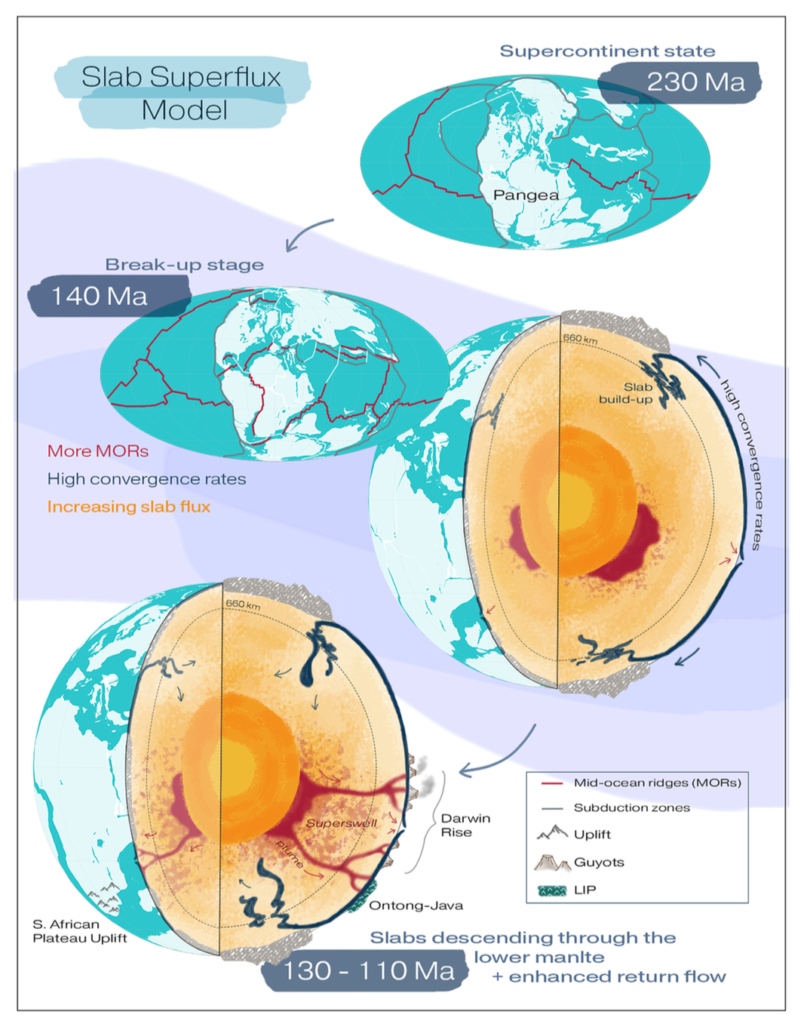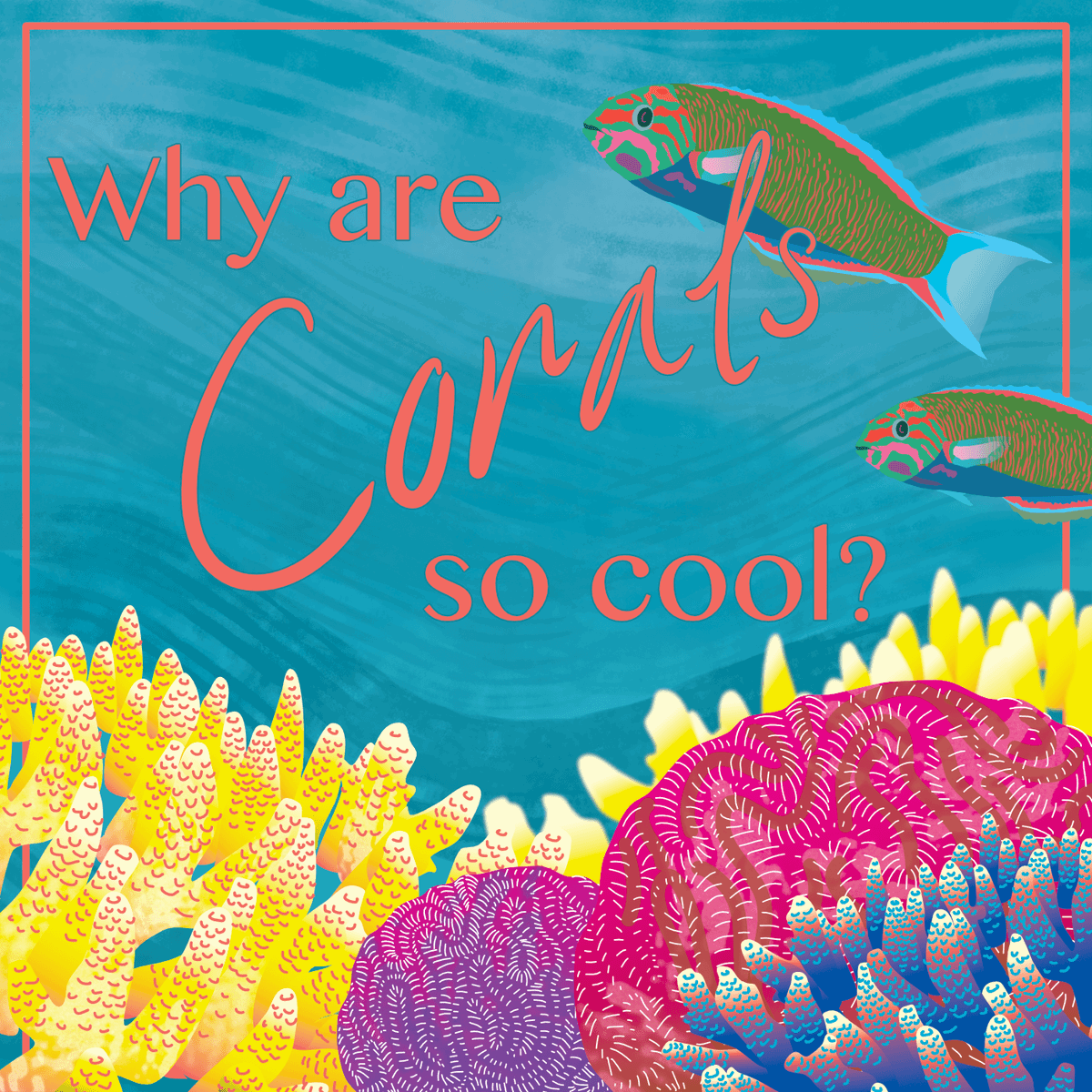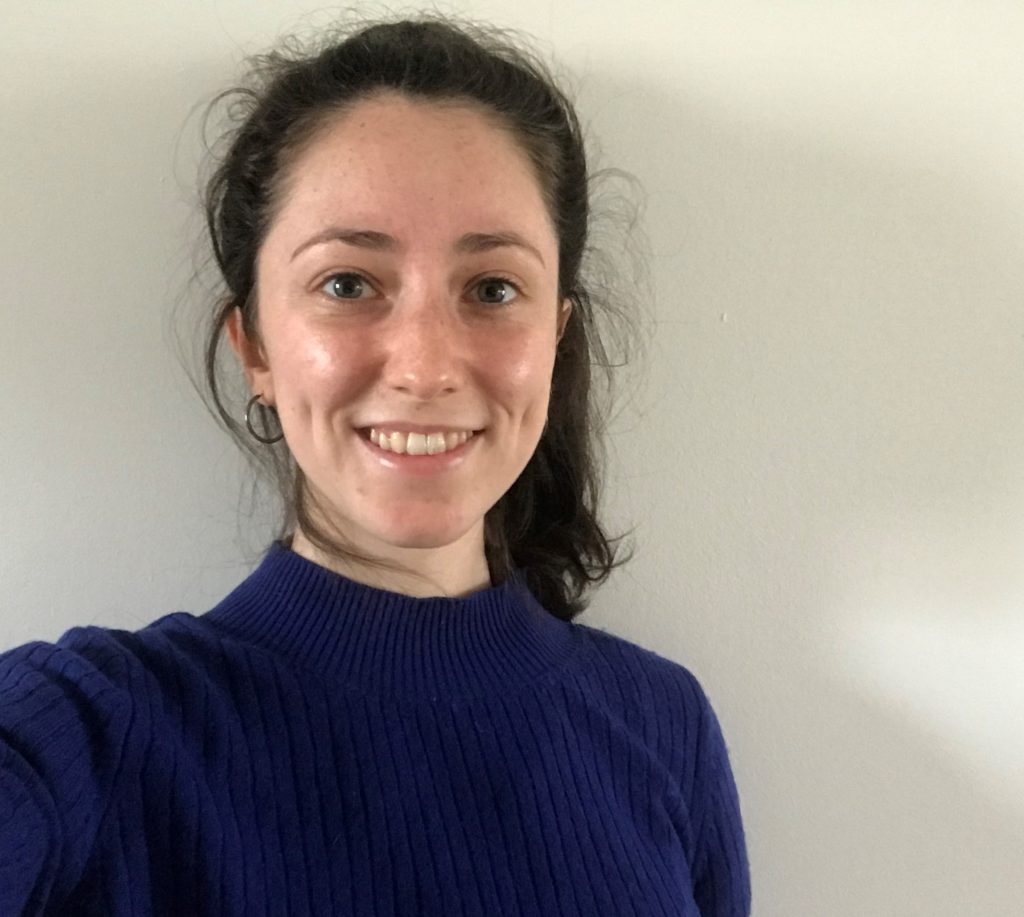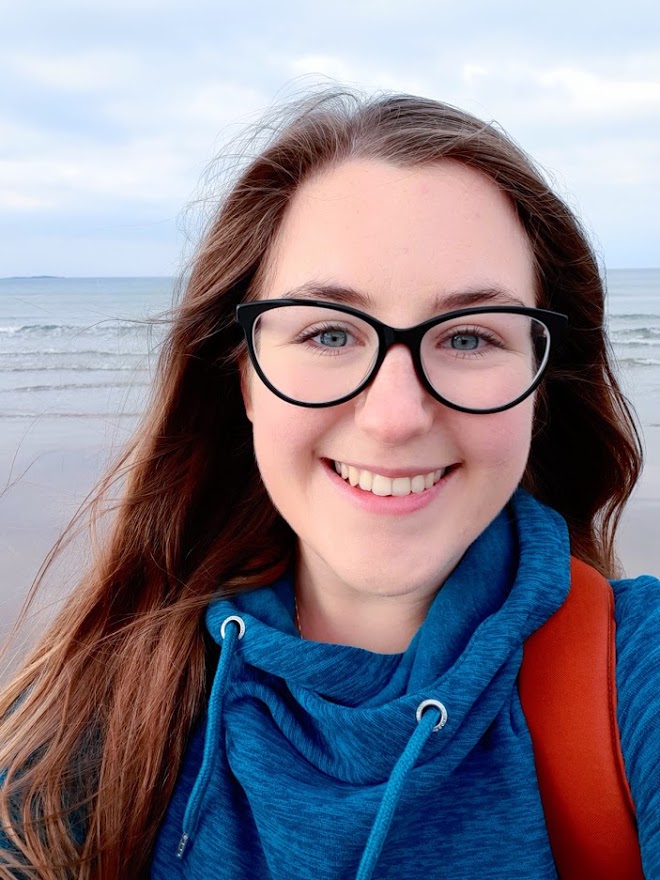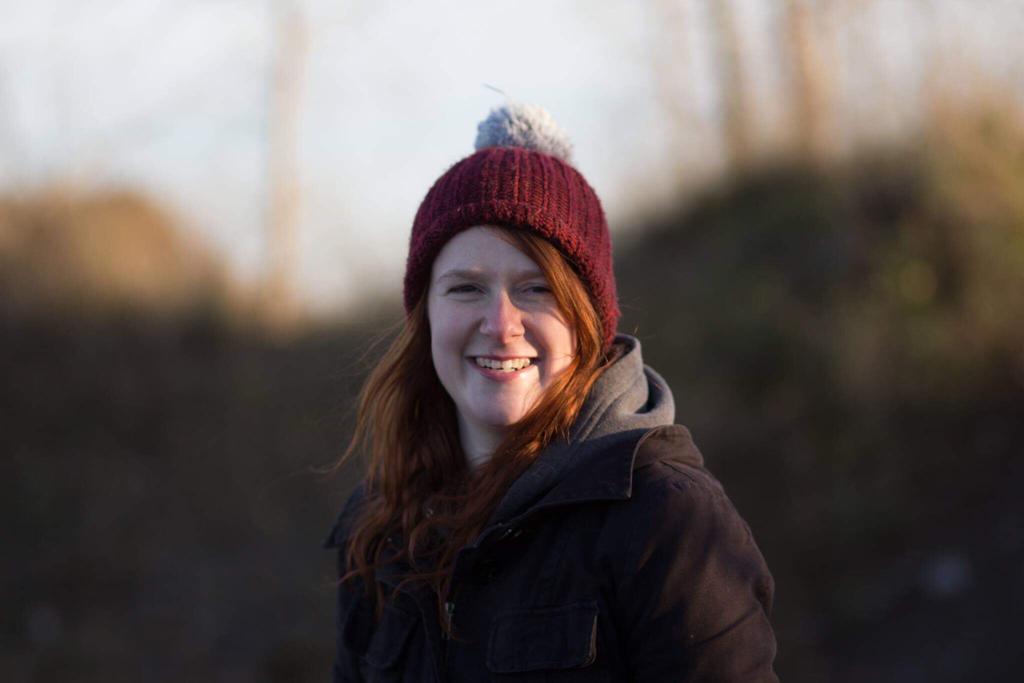
I am a PhD student majoring in environmental science at the University of East Anglia (UEA) and Plymouth Marine Laboratory (PML). Dorothee Bakker (UEA), Peter Liss (UEA), Tom Bell (PML) and Mingxi Yang (PML) are my supervisors. I was studying marine science (2012-2016) and physical oceanography (2016-2019) at the Ocean University of China.
I am interested in the air-sea gas exchange processes and the ocean uptake of atmospheric carbon dioxide (CO2). I am now using direct air-sea CO2 flux measurements by eddy covariance (EC, Figure 1) from 5 cruises to study uncertainties in EC flux measurements and factors affecting the gas transfer velocity as well as the influence of shallow stratification due to sea ice melt on indirect air-sea CO2 flux estimates. I will also study the gas transfer velocity and the shallow stratification regionally and their impacts on the global air-sea CO2 flux estimates.

Figure 1. The ship-based eddy covariance system: 1) Sonic anemometer, 2) Motion sensor, 3) Air sample inlet for gas analyser, 4) Datalogger/gas analyser (Dong et al., 2021). (The photos of the ships and instruments were taken by Tom Bell and Mingxi Yang)
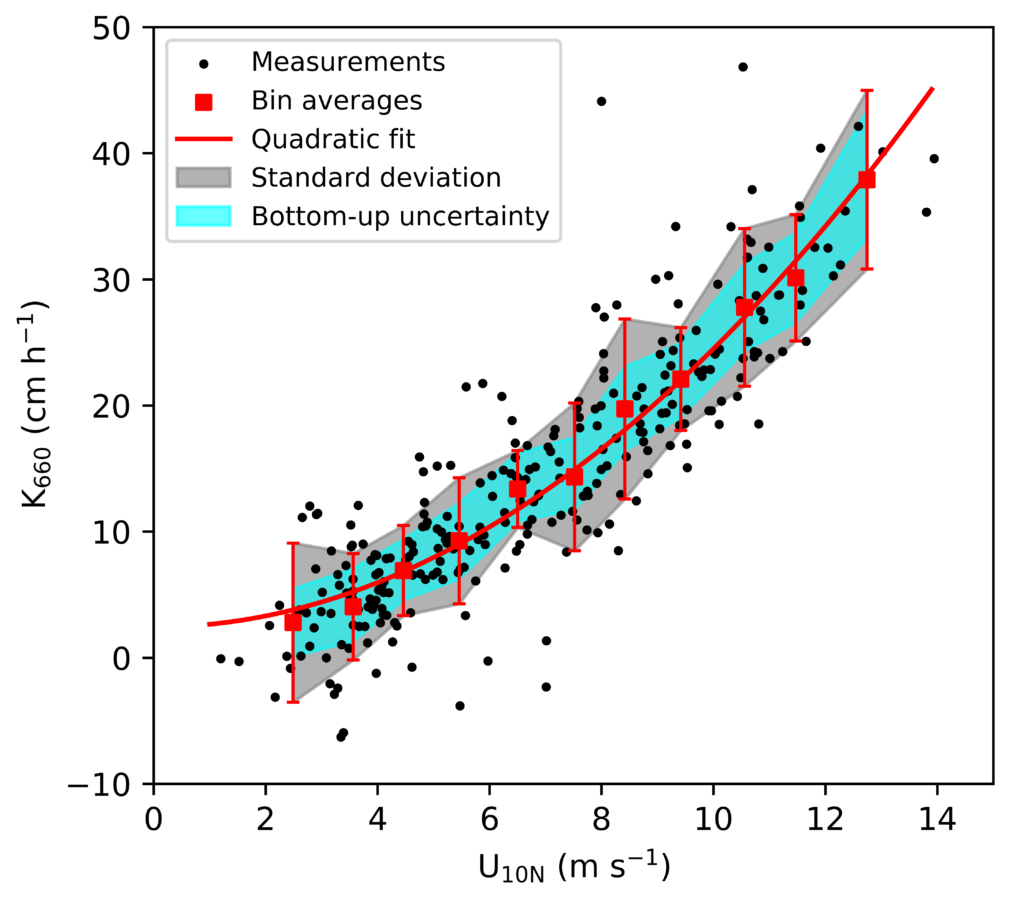
Figure 2. Gas transfer velocity (K660) measured on Arctic cruise JR18007 versus wind speed (U10N) (Dong et al., 2021).
I recently submitted a paper titled ‘Uncertainties in eddy covariance air-sea CO2 flux measurements and implications for gas transfer velocity parameterisations’ (Figure 2) to Atmospheric Chemistry and Physics (ACP) and now this paper is published as a ACP discussion paper (Dong et al., 2021, https://doi.org/10.5194/acp-2021-120). Another paper possibly titled ‘The impact of shallow stratification on air-sea CO2 flux in the summer Arctic Ocean’ is being revised.
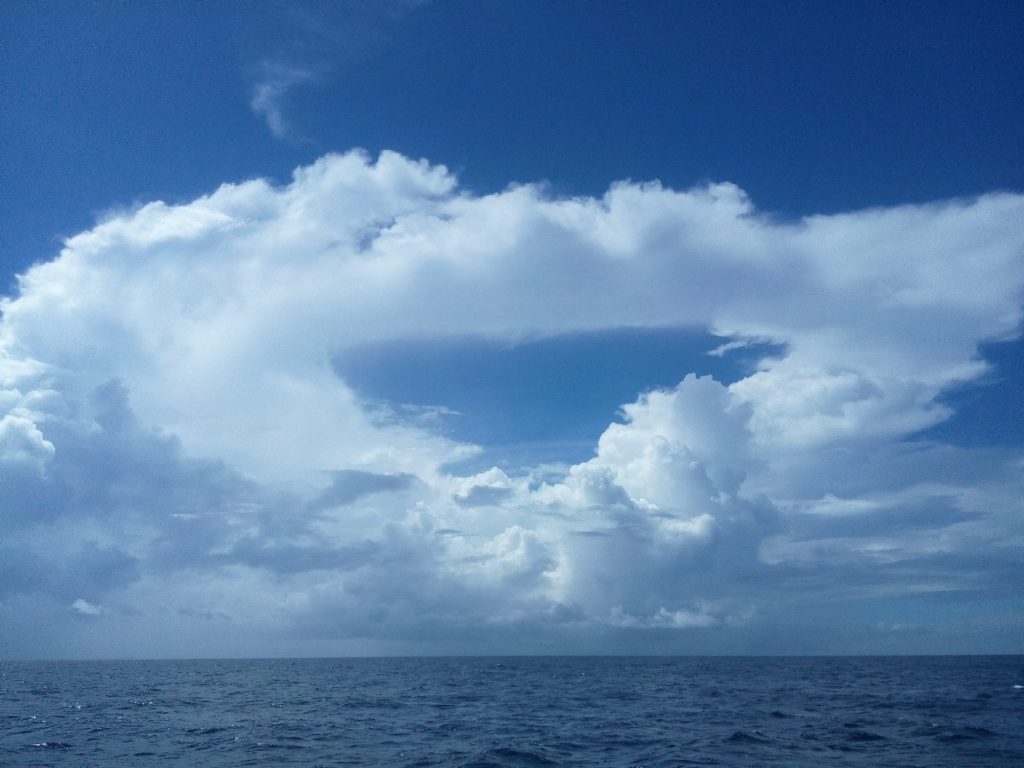
Figure 3. A heart-shaped cloud taken on the sea.
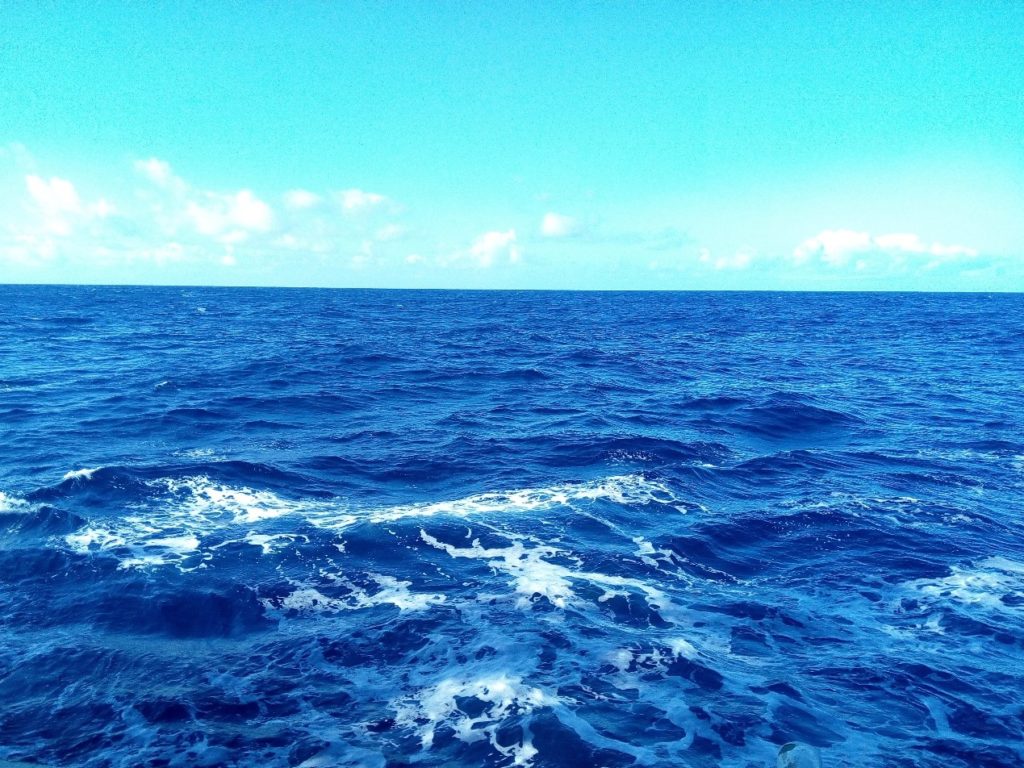
Figure 4. The seawater in the west Pacific Ocean with the transparency higher than 40 m.
I have been on two open ocean cruises (the Pacific Ocean and the Indian Ocean, Figure 3 and 4) and was responsible for part of the physical oceanography and meteorological observations. I will be likely to join an Atlantic (Atlantic Meridional Transect) cruise for the direct air-sea CO2 flux measurements in 2022.
I have expertise in data processing using Python and Matlab. I have a wide range of interests in sports like cycling, basketball, football, and table tennis.
Reference
Dong, Y., Yang, M., Bakker, D. C. E., Kitidis, V. and Bell, T. G.: Uncertainties in eddy covariance air-sea CO2 flux measurements and implications for gas transfer velocity parameterisations, Atmos. Chem. Phys. Discuss., 1–43, 2021.

